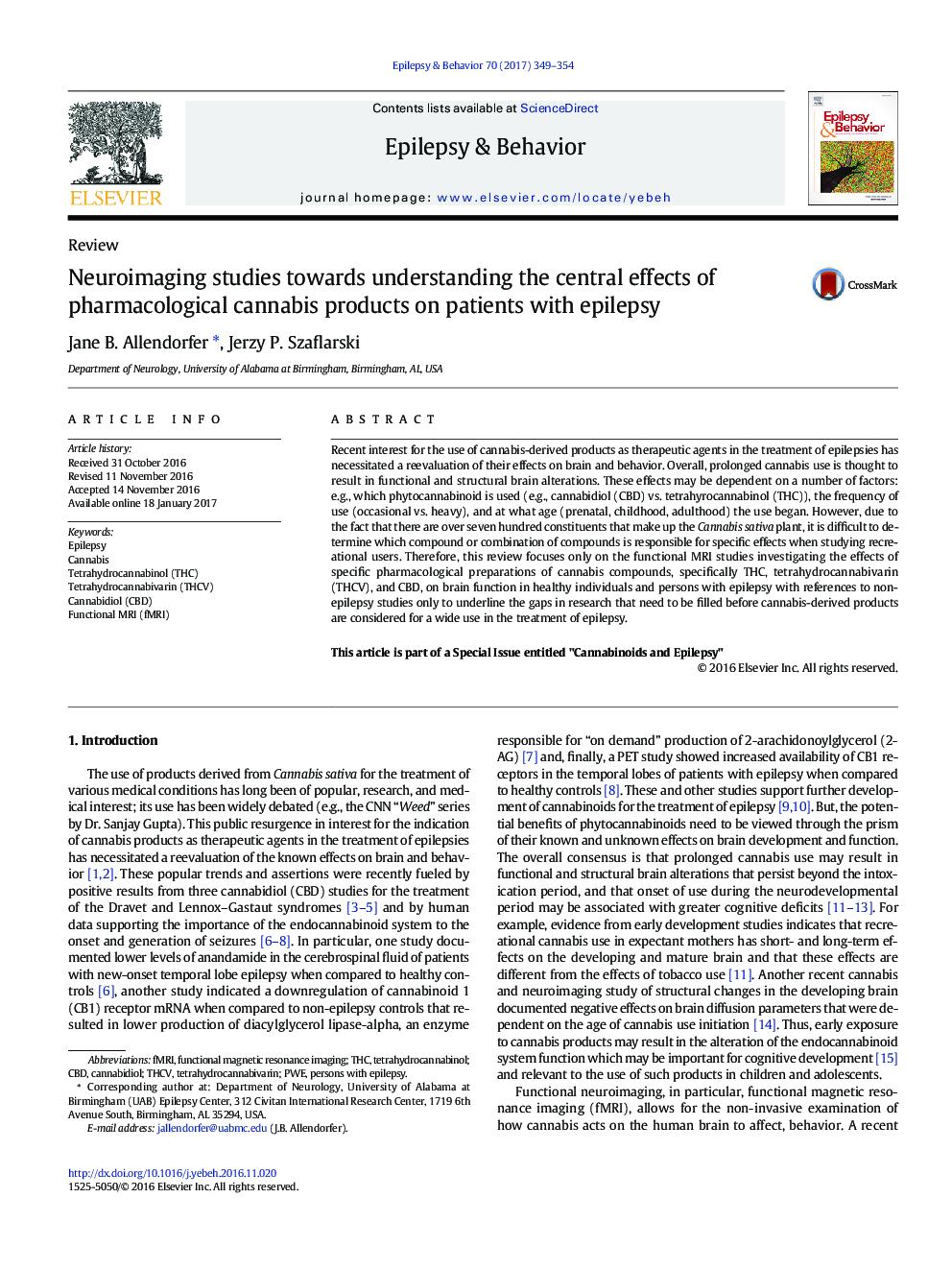| Article ID | Journal | Published Year | Pages | File Type |
|---|---|---|---|---|
| 5627993 | Epilepsy & Behavior | 2017 | 6 Pages |
â¢In health, cannabinoids have variable effects on cognition and fMRI signals.â¢Cannabinoids, in general, alter brain function and connectivity.â¢Investigations into the effects of cannabis on imaging in epilepsy are scarce.â¢Initial epilepsy studies suggest positive and negative CBD effects on fMRI signal.
Recent interest for the use of cannabis-derived products as therapeutic agents in the treatment of epilepsies has necessitated a reevaluation of their effects on brain and behavior. Overall, prolonged cannabis use is thought to result in functional and structural brain alterations. These effects may be dependent on a number of factors: e.g., which phytocannabinoid is used (e.g., cannabidiol (CBD) vs. tetrahyrocannabinol (THC)), the frequency of use (occasional vs. heavy), and at what age (prenatal, childhood, adulthood) the use began. However, due to the fact that there are over seven hundred constituents that make up the Cannabis sativa plant, it is difficult to determine which compound or combination of compounds is responsible for specific effects when studying recreational users. Therefore, this review focuses only on the functional MRI studies investigating the effects of specific pharmacological preparations of cannabis compounds, specifically THC, tetrahydrocannabivarin (THCV), and CBD, on brain function in healthy individuals and persons with epilepsy with references to non-epilepsy studies only to underline the gaps in research that need to be filled before cannabis-derived products are considered for a wide use in the treatment of epilepsy.This article is part of a Special Issue entitled "Cannabinoids and Epilepsy"
